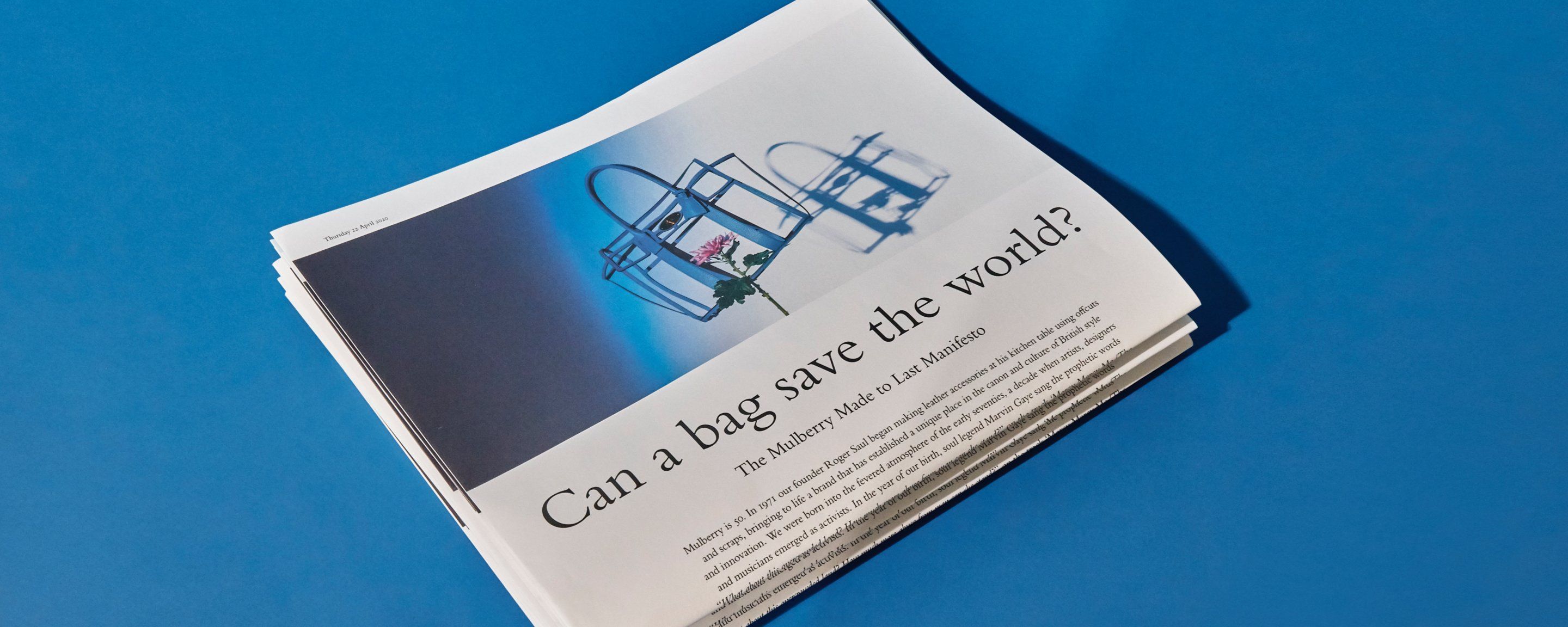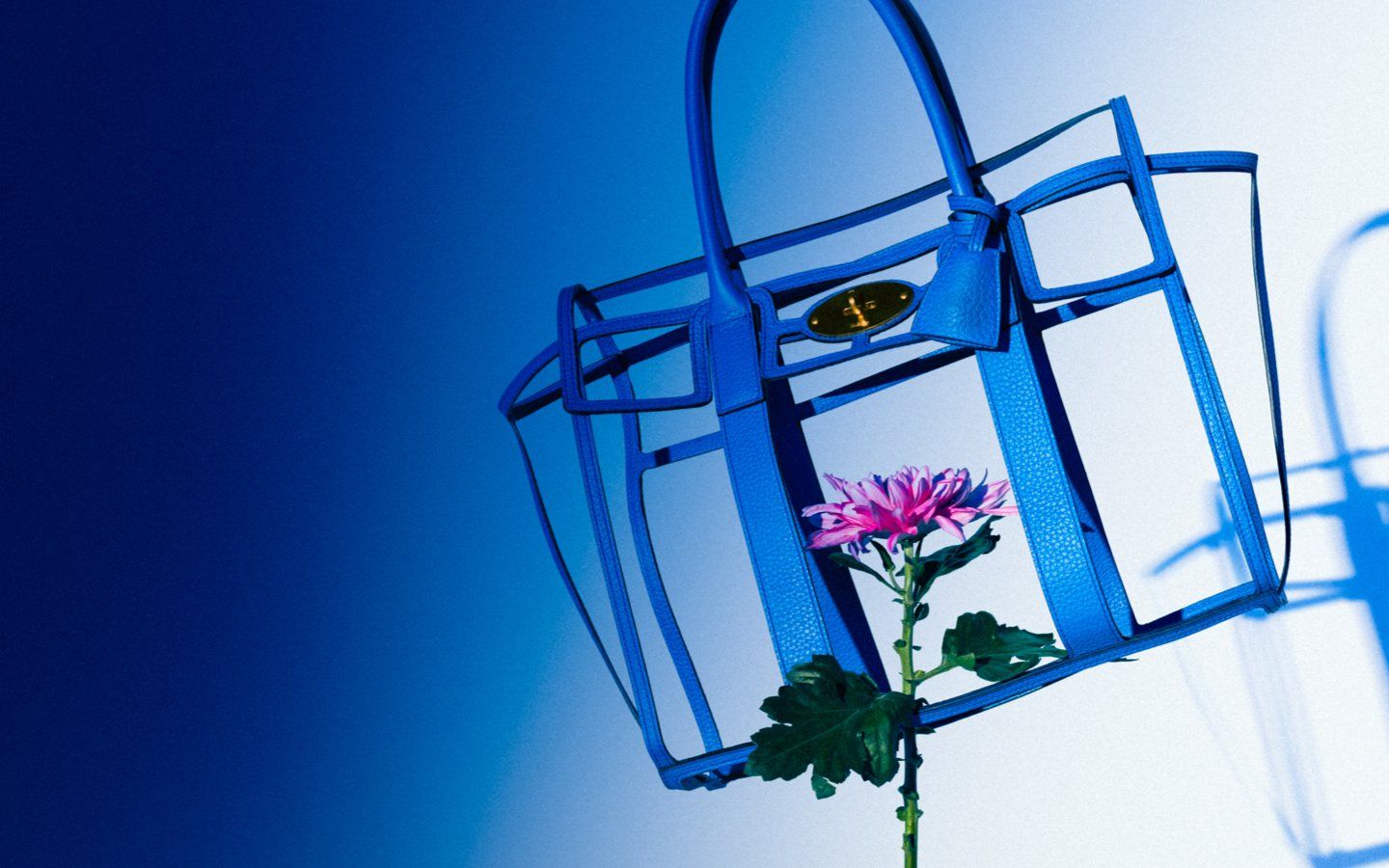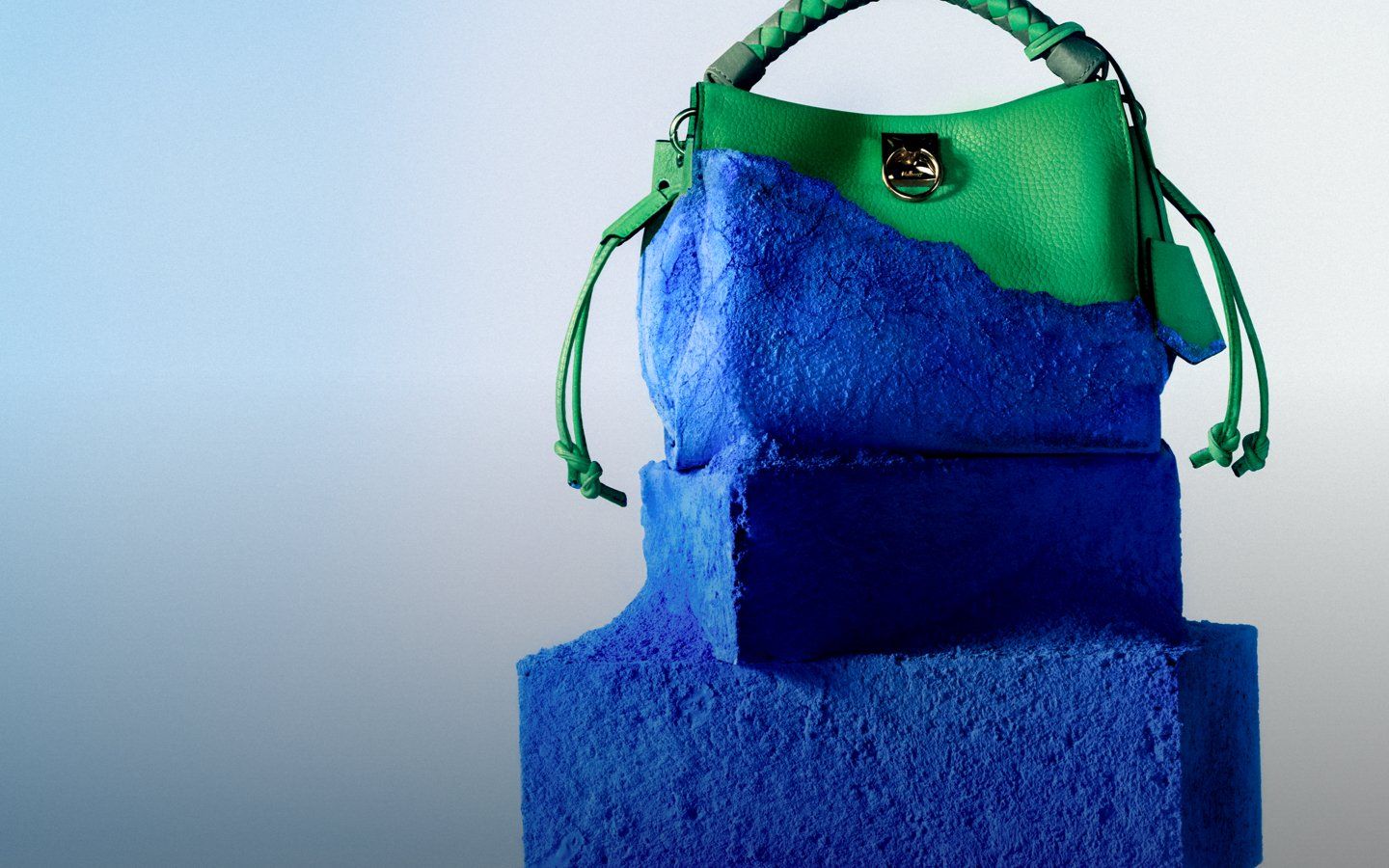The Mulberry Made to Last Manifesto
Mulberry is 50. In 1971 our founder Roger Saul began making leather accessories at his kitchen table using offcuts and scraps, bringing to life a brand that has established a unique place in the canon and culture of British style and innovation. We were born into the fevered atmosphere of the early seventies, a decade when artists, designers and musicians emerged as activists. In the year of our birth, soul legend Marvin Gaye sang the prophetic words “What about this overcrowded land? How much more abuse from man can she stand?” on the track 'Mercy Mercy Me (The Ecology)'. Half a century later can we say that we listened? Have we built a business that makes things better, a business that is truly made to last?
The reality is that despite a proliferation of industry initiatives – several of which we are a part of - the fashion and textiles sector is still estimated to produce 10% of annual Global Greenhouse Gas Emissions and change is not happening fast enough. We believe it’s time to reimagine our business as regenerative and circular at every stage of our supply chain, from field to wardrobe. To do this we have to be willing to ask ourselves some difficult questions and to respond with honesty and intention, even if we don’t have all the answers.
Can leather ever be sustainable?
According to The World Resources Institute, cattle farming was responsible for 36% of global deforestation between 2001 and 2015, driving species extinction and making a significant contribution to climate change. This statistic is certainly sobering, but we believe the problem is not the cow, it’s the how. On a regenerative and rotational farm, livestock play an essential role in maintaining soil health, and healthy soil actually draws down and stores carbon from the atmosphere. The Rodale Institute, pioneers of research in organic and regenerative agriculture, state that “of all farming practices, pasture-based livestock operations have the most potential to sequester carbon”.
It is abundantly clear that Mulberry’s 50-year association with leather is both our greatest challenge and our greatest opportunity. That’s why we are pioneering a hyper-local, hyper-transparent ‘farm to finished product’ supply chain and working with a network of progressive farmers who are committed to practices that improve soil health and encourage biodiversity.
Our transformative approach to leather sourcing will be reflected in the way we innovate new solutions across our business, from integrating recycled nylon and regenerative organic cotton into our products to continuously assessing and reducing the environmental impact of our packaging and our physical store network.
Can you make a blue bag green?
We are working hard to change our bags and our business from the inside out. Mulberry has always been a brand built on community and locality, and since our inception we have remained committed to making more than half of our products in our Somerset factories. Today those factories are carbon neutral and every person working in them is paid a real Living Wage, but proud as we are of these achievements, we know we have to go much further to make transformational change. That’s why we are working in partnership with industry-leading tanneries to develop the world’s lowest carbon leather, sourced from environmentally conscious farms and to encourage all our suppliers to align with our real Living Wage commitment. In 2021 we will release our first ‘farm to finished product’ bags: a collection that will represent the future of our business, establishing a model that we will replicate with our network of trusted partners, laying the foundations for our next 50 years.
Who needs a new bag?
The uncomfortable but honest answer is that there are probably enough bags in the world already to be exchanged and resold for generations to come. That’s why any new bags we do make must have a positive impact to be relevant. However, we also believe that our responsibility and our business don’t end when a customer leaves our store. In fact, that’s when the real work begins. We know that many of the bags we made 50 years ago are still going strong today, and we believe those we make today should be doing the same for the next 50 years. Our Repairs Team at The Rookery, our Somerset manufacturing home, are masters of restoration and we are proud to say we repair and renew over 10,000 bags a year.
Can you teach an old bag new tricks?
Much as we might like every customer who buys a bag from us to keep it for life and hand it down to the next generation, we also believe that a change or exchange can still be positive for everyone. That’s why we’ve established the Mulberry Exchange, an in-store and digital platform to match authenticated and beautifully restored classics with a new owner, ensuring that a humble bag can have many lives. If the day comes that one of our bags really has reached the end of the line, we will still buy it back, and using an innovative energy reclaim system unique to our strategic partner Muirhead, a member of the Scottish Leather Group, power the production of a new bag, ensuring that the line never ends, it just becomes a circle.
Can a bag save the world?
The alchemy of real change is born from a willingness to ask ourselves the hard questions and to keep seeking meaningful answers. Can a Mulberry bag come with a promise of regeneration, renewal and reimagination? If it can, and we believe it can, then yes, a bag can truly play a part in making things better. We hold that belief as a beacon for a brighter future and support it with genuine action. Because, in the words of Marvin Gaye…
“You know, we’ve got to find a way”.


